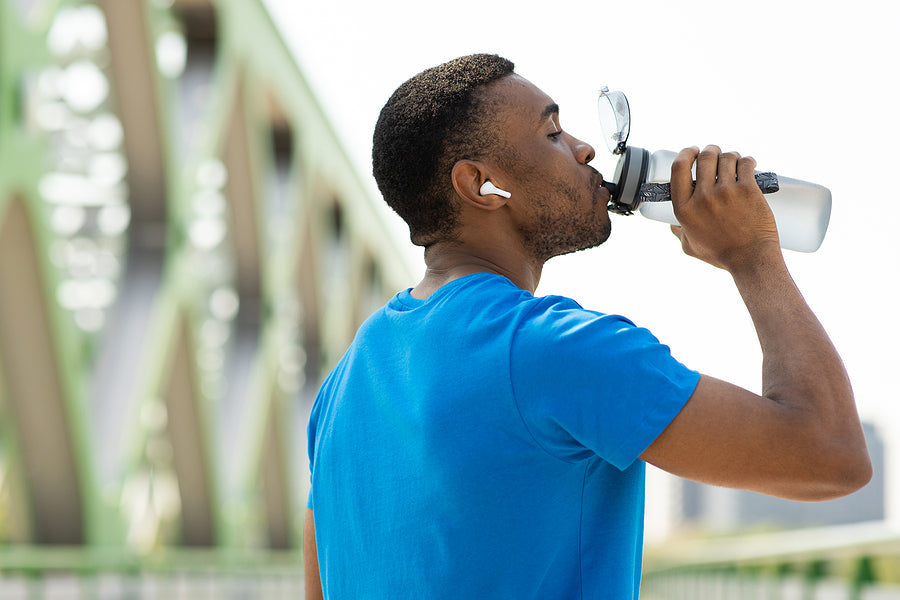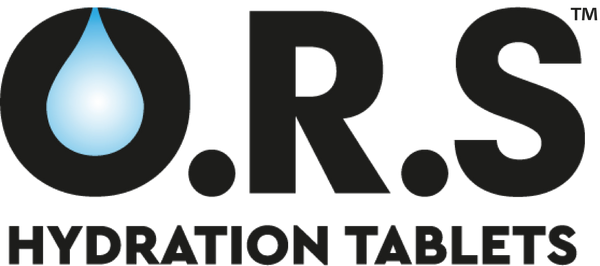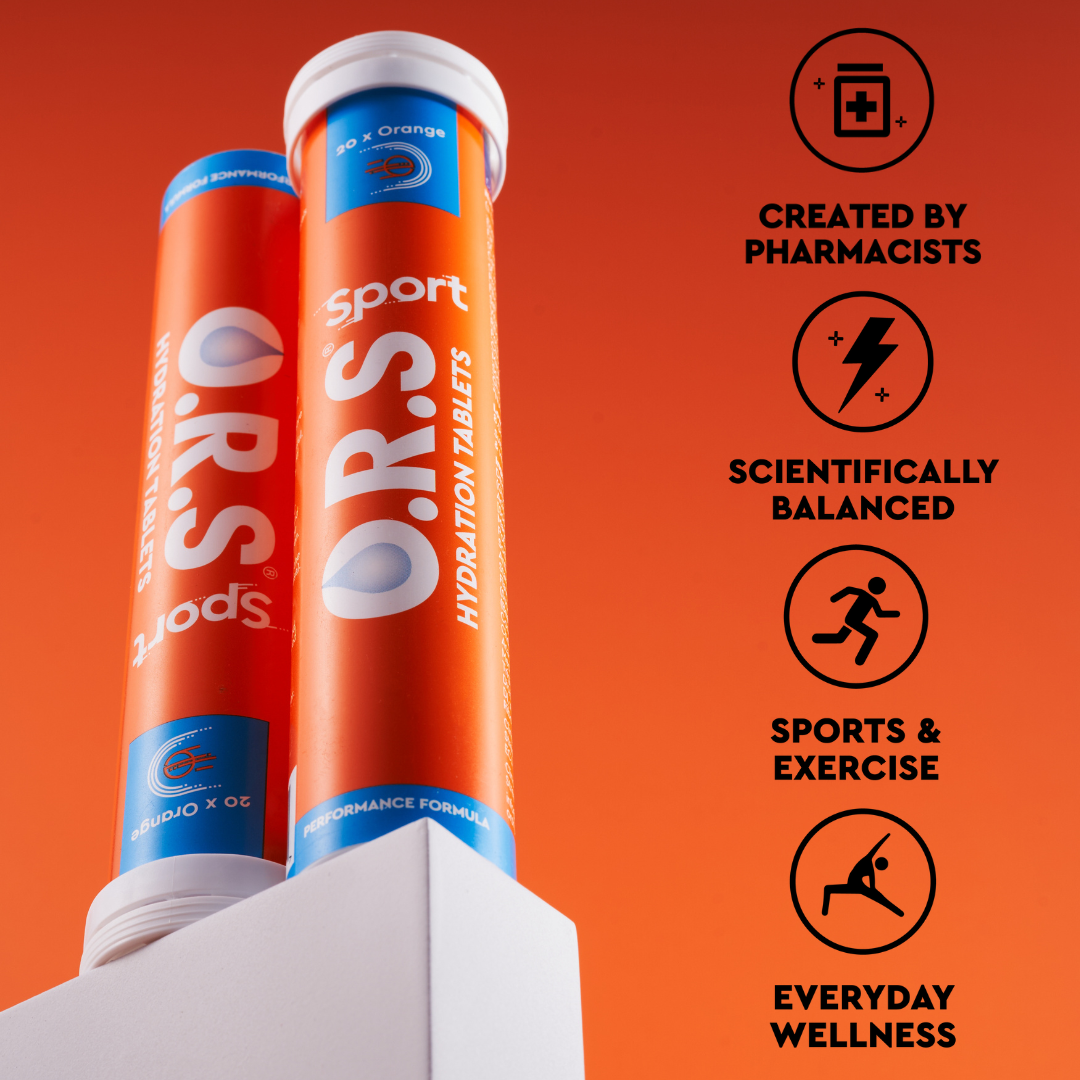
How Much Water Should You Drink While Exercising?
Share
Water is vital for the healthy functioning of the body. It aids the delivery of nutrients to cells and oxygen to the vital organs; it keeps the joints lubricated; it regulates the body temperature. When we are dehydrated, the body has to work much harder just to keep functioning, and this can leave us feeling tired, dizzy, and confused.
When we lose more fluid than we take in, our body becomes dehydrated. When you consider that the average adult human body is 60% water, it is easy to see how even being mildly dehydrated can begin to affect our mood and mental performance. In normal circumstances, the NHS recommends that we drink six to eight glasses of water a day.
However, when the weather is warmer and we are also exercising, we lose more fluids through our sweat. In fact, during heavy exercise in hot conditions, we can lose up to two litres of water. It is not just water that is being lost, but also essential minerals such as sodium, calcium, magnesium, and potassium.
These minerals contain electrolytes which help to balance the water levels in the body, and other essential functions such as allowing the muscles to expand and contract properly, removing waste products, and helping the nerves to send signals to the brain. Therefore when we are dehydrated we will also have an electrolyte imbalance.
For these reasons, it’s essential to stay well hydrated during exercise. Even mild dehydration can affect your performance and means that you won’t be able to get the most out of your exercise session. If you play competitive sports, then it will be much more difficult to keep up to your usual standard.
There is no definitive answer to the exact amount of water you should drink, because it will depend on your body size, the duration and intensity of the exercise, and the weather conditions. It may be helpful to add electrolyte tablets to your water to replace lost minerals and enable the body to rehydrate more quickly.
Two to four hours before you begin to exercise, you should drink plenty of water so that the body has time to absorb the fluid. During exercise, it’s best to take sips of water at frequent intervals rather than wait until you are thirsty, because this is a sign that you are already dehydrated.
Sweating is the body’s way of releasing heat to maintain an optimal core temperature. Once we are seriously dehydrated, the body will struggle to cool down and we may be at risk of heatstroke. The body can rise from its normal temperature of 98.6°F to over 106°F in a matter of minutes.
Heatstroke is potentially serious. Some of the signs are similar to severe dehydration and include feeling tired, dizzy, sick, cramps in the arms or legs, fast breathing, a fast heartbeat, thirst, a high temperature and weakness. It’s essential to move to a cool place and take in fluids as soon as possible.









